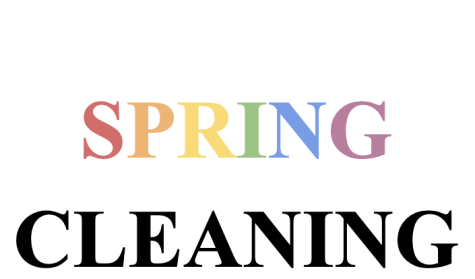Raising Eating Disorder Awareness
Lucy reflects on her struggle with eating disorder and how she relates to the movie Someday Melissa.
Since freshman year, I have been amazed by the broad spectrum of people that I see at school each day. People of all shapes and sizes pass me in the halls, some strutting, some shuffling, some giggling, and some hurrying ahead with their eyes locked on unclear destinations. As I watch them, I notice artists, scientists, mathematicians, writers, photographers, cartoonists, athletes, fashionistas, musicians, and an astonishing variety of other types of people, each as distinct and special as a snowflake in a winter storm. This individuality and uniqueness is one of the most beautiful things about PHS.
However, I have also become aware that what is on the outside does not always reflect what is on the inside. Many of us wear convincing façades as we go about our daily lives, brushing our true problems and insecurities aside and living our lives in denial as we walk the never ending treadmill of trying to please others. In this sort of world, the deep, raw, flawed, and personal elements of our lives can become forbidden subjects, even if they are of life and death significance. Eating disorders are one of these culturally tabooed topics, and the problem is that they can be matters of life and death, or at least the difference between joy and misery. People of all ages, genders, and ethnicities struggle with their body images, yet so many people with eating disorders are afraid to reach out for the help that they need. Instead, they resort to wasting away. By the time their peers notice, it may be too late.
People of all ages, genders, and ethnicities struggle with their body images.
— Lucy Arnold
How do I know all of this? Well…it happened to me. When I was thirteen years old, I made an innocent plan to get in better shape and to improve my body image. I was not overweight by any means, but my perfectionist tendencies had gotten the best of me. I reasoned that my life would be so much better if I was just a little bit skinnier or just a little bit more perfect.
And so it was that the most difficult stretch of my life began.
At first, everything was going according to plan: I had lost all that I could afford to lose, and I was loving all of the compliments that I received from friends, family, and neighbors. Everyone was proud of me, and my elaborate dietary regimen and exercise program gave me the illusion that I was in control. I liked the feeling and decided that I wanted more, unaware that this decision would quickly spiral out of control.
I rapidly became addicted to thinness, progress, and perfection. But the problem with addictions is that they blind people, and the problem with perfection is that it doesn’t exist. In my blindness, I failed to acknowledge the scary pace of the numbers falling on the scale, the alarmed looks on people’s faces when they saw me at church or at the grocery store, that doing sit ups for two hours straight each night is not healthy, or the warning signs that my body was sending me. I was constantly cold, my bones stuck out, my skin was pale, my muscles were disappearing, and my hair was growing thin, which are all major symptoms of anorexia.
It finally dawned on me that something was wrong when people began to call me gaunt and skeletal, when my family threatened to hospitalize or institutionalize me, and when a concerned family friend incorrectly assumed that I was throwing up my food. As I acknowledged that I had a mental illness and began to fight it, my life took a tumultuous turn into the dark world of trying to find the light. Some days, I would feel on top of the world, confident that I was finally getting better. Other days, I fought with all of my will to keep from relapsing into my old, unhealthy habits, often without success. At times, those days were almost unbearable. I may have never recovered if I had not found new healthier obsessions to replace the old ones. I became an avid runner and health nut. I spent more time with friends and stopped shutting myself off from my family. I stopped weighing myself and counting calories. Slowly, I became a new person, stronger for the personal battle that I was winning and enduring. Today I have fully recovered mentally, but I am still mending physically. Even when my recovery is complete, I will never forget the experience.
In the United States, 20 million women and 10 million men suffer from an eating disorder at some point in their lives. These disorders include anorexia nervosa, bulimia, binge eating, or an eating disorder not otherwise specified, and the symptoms can vary greatly from person to person. There is, however, one experience that they all share in common: they are all fighting the personal battle of their lives. The scariest thing about an eating disorder is that you are constantly at war with yourself; you are torn between living a healthy life and living one of strict self-denial and control. Dealing with this mental challenge and knowing that it is literally eating you alive is the most difficult experience I have ever known. It is no wonder that eating disorders and depression often go hand in hand. The good news is that, if caught early enough, eating disorders can be treated successfully. If not, they can lead to fatal problems. Eating disorders have the highest mortality rate of any mental illness.
They are all fighting the personal battle of their lives.
— Lucy Arnold
Melissa Avrin was a beautiful, confident young woman when she first decided to lose weight. Before she knew it, she had bulimia. The disorder wreaked havoc on her social life, self-esteem, academic success, and family relationships. She transformed from a happy person into a hollow, sad human being who, in striving to exert extra control over her life, lost all control. Her family knew that something was wrong and convinced her to start treatment. In spite of temporary improvements, Melissa soon relapsed into her old habits. At the age of nineteen, she succumbed to her internal struggle and lost her life after five years of heartwrenching strife. The poignant documentary, Someday Melissa, conveys the hopes that she held for her future, when she hoped to be free of bulimia. It also attempts to educate the public about the dangers and seriousness of eating disorders by showing that they can literally destroy or end a person’s life and devastate that person’s family. Melissa’s parents will never be the same, though they have found comfort in educating others about how to fight the force that took their daughter’s life.
The mental and emotional scars left by an eating disorder are much worse than the physical ones because they can permanently alter one’s self-image and often lead to self-fear or self-hatred. A person who is anorexic or bulimic will look in the mirror and only see the flaws, the “fatness”, or the “ugliness”; he or she won’t be able to see the positive aspects that other people see. The best ways to help such a person are to treat him or her as normally as possible, to be a friend, and most of all to let the person know that he or she is NOT alone. If you have an eating disorder yourself, please know that there is no shame in having this condition. You are fighting a great personal battle that takes immense strength and courage to overcome. With that said, the most dangerous thing that you can do is to distance yourself from loved ones. The burden you are carrying is too heavy to carry alone. Surround yourself with the people who love you and keep in mind that they see you differently than you see yourself. They want what is best for you and they would be devastated if something happened to you. Listen to them when they tell you that you are beautiful and that you will get through this. As hard as your situation is right now, you will be stronger when you overcome it. Trust me.

Lucy is a senior this year. After spending her junior year writing and reporting for Outlook and loving every moment of it, she became editor in chief....















